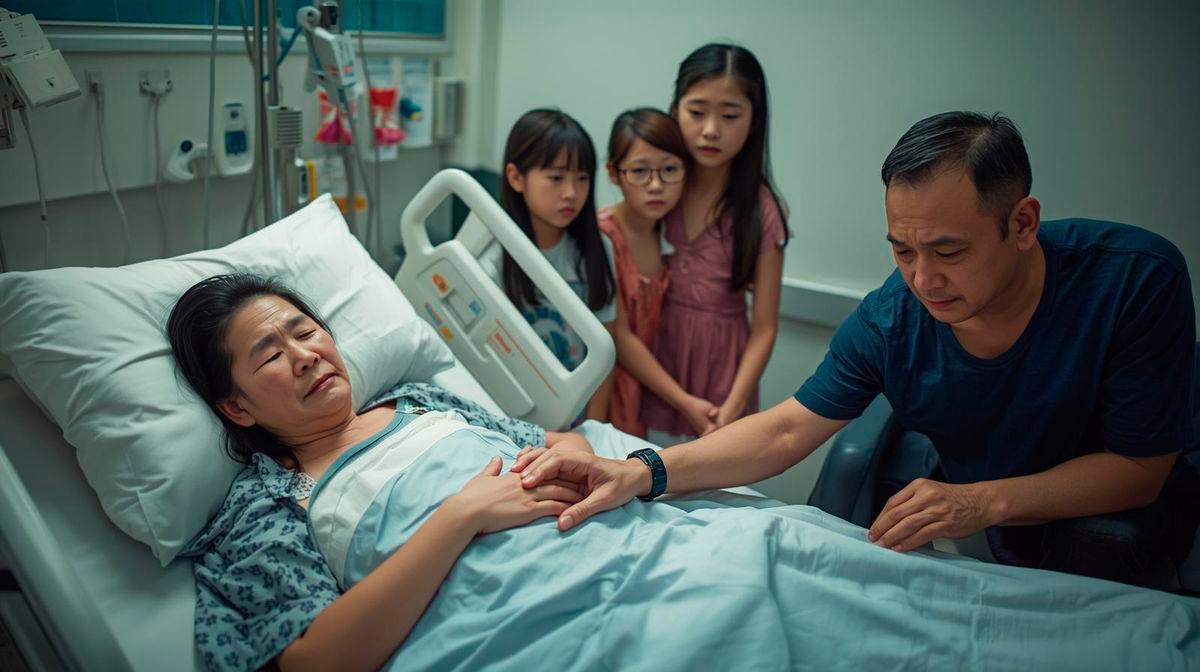HEART disease, pacemakers, kidney failure, chronic diabetes, strokes and autoimmune conditions are serious illnesses, yet people often speak about them openly. But mention a terminal illness and the tone changes. Patients conceal their diagnosis even from close friends, hiding the pain and the decline for as long as possible. Only after death do loved ones discover the truth, leaving them shocked and bewildered.
Why do some people keep a terminal illness secret from those closest to them? After conversations with others, and reflecting on personal experience, it is clear that the reasons are varied and deeply human.
Protecting loved ones: Many feel they are sparing their family and friends pain. They do not want to be the constant source of sadness, worry or pity.
Preserving normalcy: Sharing a terminal diagnosis often means life immediately revolves around the illness. Some wish to avoid being defined as “the sick person” or for relationships to shift prematurely into caregiver–patient roles.
Denial and avoidance: For some, speaking about the illness makes it real in an unbearable way. Avoidance is a coping strategy that helps them manage overwhelming emotions.
Fear of stigma: Despite progress in awareness, certain conditions – particularly cancer and HIV – still carry stigma. People fear being pitied, treated differently or excluded.
Desire for control: A serious diagnosis often strips away a sense of agency. Choosing who knows and when is one of the few things they can control. Managing disclosure allows them to retain dignity and autonomy.
Guilt and burden: Many worry about weighing others down with grief. They fear “ruining” others’ happiness and prefer to carry the load silently rather than risk being seen as a burden.
Cultural and personal influences: In some cultures and families, illness and death remain taboo topics – something that should be endured privately.
Impact on loved ones
These motivations are understandable but secrecy has profound consequences for those left behind.
I experienced this recently when a close friend of 30 years, living in Hong Kong, died. Our last contact was in February 2024, when I sent her Chinese New Year greetings. She thanked me but afterwards my texts, calls and voice notes went unanswered.
Months later I reached out again, worried she was upset with me. Her husband replied to say she was in hospice care after battling cancer for nearly a decade. During those 10 years, we spoke and texted like usual. She occasionally mentioned being unwell and said the doctors couldn’t find anything wrong. Anytime I mentioned visiting her, she made some excuse.
At her funeral two weeks ago, I learned that she had asked her family to keep her illness private. Friends stood around in shock, all echoing my own disbelief. Though her intention may have been to protect us, many of us were left grappling with complicated grief and unanswered questions.
The emotional impact of being excluded from news of a loved one’s impending death can be significant:
• Loss of time – Loved ones grieve not only the death but also the moments they never knew they were losing. There is no chance for final conversations, farewells or reconciliation.
• Feelings of rejection – Being left out can question the relationship’s value. “Wasn’t I close enough? Didn’t I matter enough to be told?”
• Anger mixed with grief – There may be resentment at being denied the chance to help or simply be present. That anger often collides with guilt, complicating the grieving process.
• Betrayal of intimacy – Discovering that others knew while one did not can feel like a breach of trust, particularly in long-standing friendships.
• Helplessness and regret – Survivors agonise over what they would have done differently if they had known. The sense of powerlessness is twofold: they could not help during the illness and they cannot change it now.
• Confused grief – Love, hurt and anger coexist, creating a more isolating mourning process.
• Secondary trauma – Family members who kept the secret may carry guilt, straining relationships at a time when unity is most needed.
Rethinking secrecy
At one point in my life, I thought I too would keep a terminal diagnosis private but having been on the receiving end of secrecy, I understand now how heavy the silence can be for those left behind.
Protection through secrecy deepens the pain of loss. Friends and loved ones do not need to be shielded from reality; they long to help in whatever way they can.
If you or someone you know faces the end of life, consider the gift of openness. Sharing the truth allows loved ones to support you, create meaningful final moments and find peace in knowing they walked beside you until the end.
Secrecy may feel like control but openness fosters connection – the very thing we need most when time is running out.
Nahlana T. Kreshnan is a somatic psychotherapist and life and executive coach. Comments: letters@thesundaily.com









